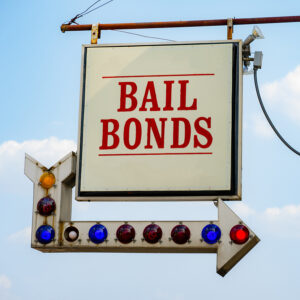Fearing for their political lives, many elected officials in New York are hurriedly backing down from previous commitments on bail reform. The measures had rolled back the use of cash bail, except for some violent crimes and other exceptional circumstances. That meant an end to jailing people before their trial for months or years, for the crime of being unable to pay their bail.
Now, it seems cash bail is back on the menu, despite all the evidence suggesting that will be a bad thing for law and order.
A new study, The Hidden Costs of Pretrial Detention Revisited, examined data from 1.5 million people booked into jail in Kentucky between 2009 and 2018 to investigate whether cash bail is as effective and vital as its supporters claim. The researchers’ findings were striking. Not only is the widespread use of cash bail ineffectual but in fact counterproductive. It makes communities less safe.
It might be counter-intuitive, but avoiding putting people behind bars until we have no other choice makes the public safer. In other words, jailing defendants before they have been found guilty of any crime makes them more likely to reoffend and less likely to turn up for their trial. It therefore makes bail less effective and undermines law and order more broadly.
Think of it this way. If you were falsely accused of a crime, you would have the constitutional right as an American to a fair trial — a right you would be very grateful for, no doubt. But how would your attitude to the justice system change if you were then detained for months — or in some cases even years — before your trial has begun? You would have been put behind bars practically indefinitely without even the chance to voice your defense before a jury of your peers.
Would finding yourself in that predicament inspire confidence in the justice system? Would it make you believe in its sincere desire to rehabilitate criminals and prioritize public safety above all else? Of course not. Unsurprisingly, foregoing the presumption of innocence and instead incarcerating people who have been found guilty of no crime stokes resentment in American institutions and inevitably leads to worse outcomes for everyone.
As if that were not enough, the cash bail system also represents disastrously inefficient government spending. According to data from the Prison Policy Initiative, on any given day, a whopping 400,000 people presumed innocent are held in pretrial jails across the country. They make up more than two-thirds of jail populations. That means your tax dollars are being spent incarcerating thousands upon thousands of people who have no need to be behind bars and have not been found guilty of any crime.
The heart of the problem is that the cash bail system decides who to release and who to detain based on wealth, rather than danger to the community. Too often, those charged with non-violent offenses are incarcerated entirely unnecessarily, at great cost to them and the taxpayer. Bail reform does not mean allowing violent, dangerous offenders to walk free, but rather limiting the use of pretrial detention to cases when it is truly merited.
Despite the fears of New York officials, there is no data whatsoever to suggest a link between bail reform and the recent spike in crime. But the populace is always right, and since politicians prioritize self-preservation above almost everything else, they seem worryingly willing to give in to the counter-factual narrative and back down on bail reform.
That is a bad thing for the American justice system and for taxpayers’ wallets. It means tax dollars are used less effectively and it means we are less safe. For all our sakes, politicians must put facts above feelings and consign the unnecessary overuse of cash bail to the history books.

